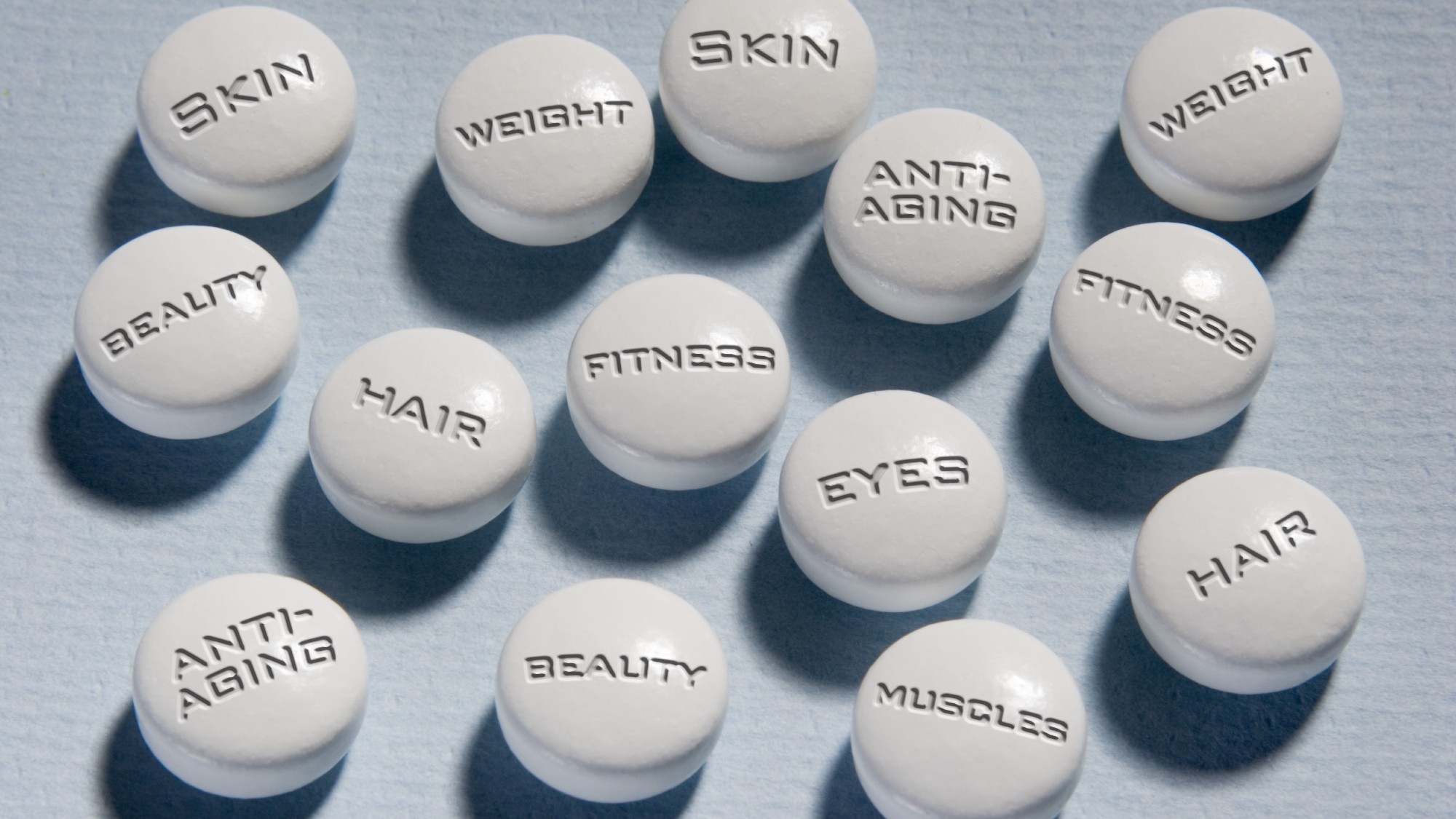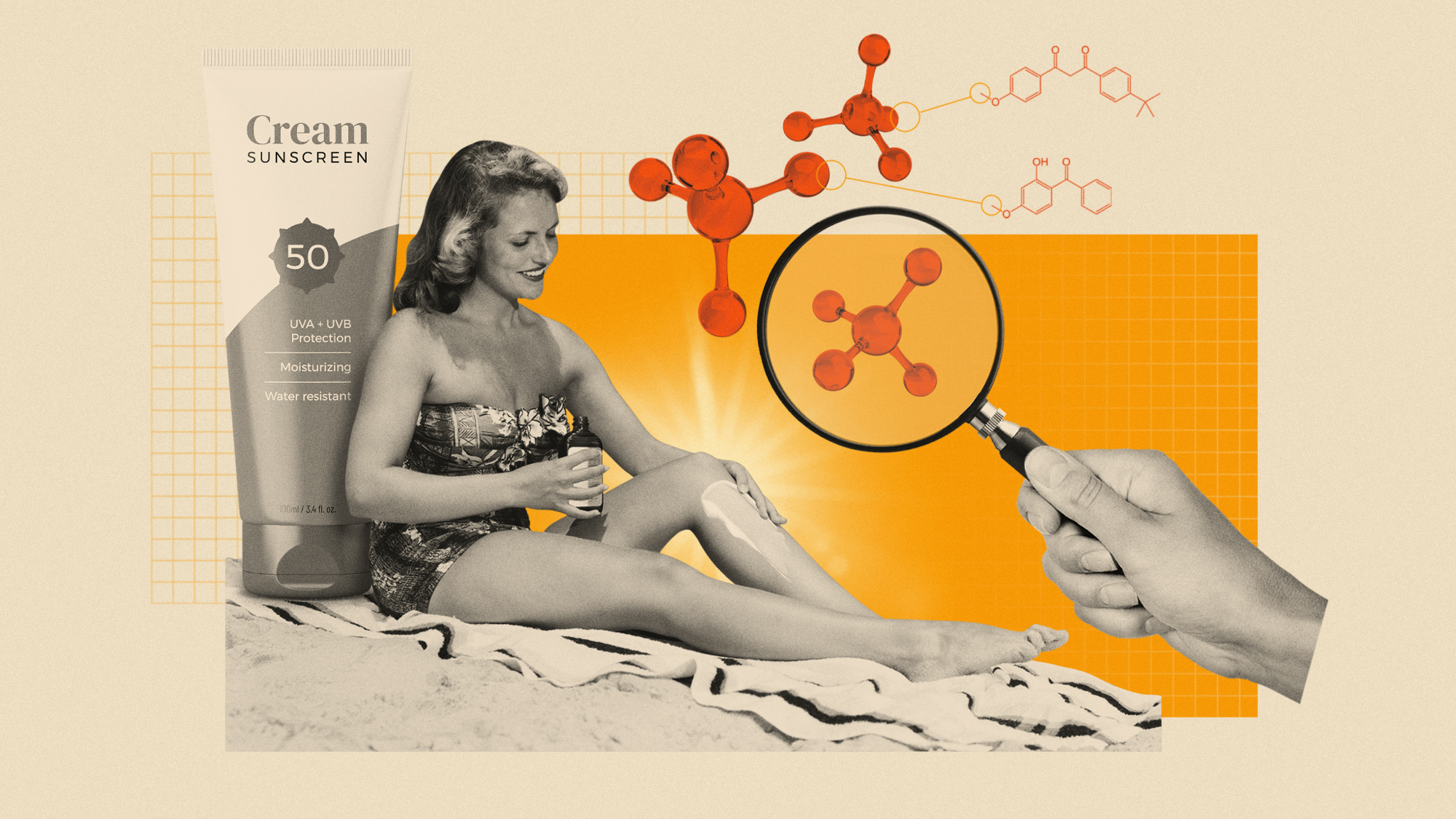The never-grow-older generations are here
Entering the age of not-aging


A free daily email with the biggest news stories of the day – and the best features from TheWeek.com
You are now subscribed
Your newsletter sign-up was successful
Generation Z and Alpha are scared to age. Social media has encouraged children and teens to delve into anti-aging treatments for skin way earlier than necessary. Using intense chemicals on young skin leads to a myriad of other conditions and allergic reactions. The interminable quest to prevent aging has also gone further, as younger adults opt to have preventative cosmetic surgeries before they show signs of aging. With social media's influence only growing, growing old is going out of style.
Background
Children and teens are being sucked into the world of anti-aging, thanks to social media. Deemed "Sephora kids," today's youth are storming beauty stores for skin care products that were never designed for them. Teens spent 33% more on cosmetics and 19% more on skin care in 2023 than 2022, according to a report by Piper Sandler. "They're celebrating birthdays at Sephora, rattling off beauty products' chemical properties, trading samples and sending each other videos of morning skin care routines," said NPR.
The products coveted by today's youth include ingredients like vitamin C and retinol, which are strong and made for use on older skin. "It's worrying to see so many kids diving into skin care routines that aren't designed for them," said dermatologist Dr. Andrew Kane, to ITV News. Children's "skin barriers are more sensitive to the active ingredients in these products."
The Week
Escape your echo chamber. Get the facts behind the news, plus analysis from multiple perspectives.

Sign up for The Week's Free Newsletters
From our morning news briefing to a weekly Good News Newsletter, get the best of The Week delivered directly to your inbox.
From our morning news briefing to a weekly Good News Newsletter, get the best of The Week delivered directly to your inbox.
Many place responsibility on influencers and cosmetic companies. The brand Drunk Elephant, popular among Gen Alpha, is "distinctive for its bright colors" said Salon. Influencers are also sharing their "elaborate, irresistible routines." Dermatologist Dr. Brooke Jeffy said to USA Today "Skin care and some of these brands, they've just become a status symbol."
The latest
Children's interest in high-end skin care products is not only expensive but can also be harmful. "They don't understand the function of skin and that it's not just this wall you can throw anything at," said Jeffy.
"Many of the trendy creams are harmless, but there are concerns around products designed specifically for older skin," said ITV News. "Strong ingredients like retinol, vitamin C, hydroxy acid and anything labeled as 'brightening' or 'anti-aging' can cause lasting damage if used incorrectly." Specifically, overusing strong skin care products "can lead to skin rashes like contact dermatitis," said Dr. Joshua Zeichner, a dermatologist at the Mount Sinai Hospital, to Health.
Young skin "has plenty of collagen and fast cell turnover … and hasn't accumulated much damage," said Axios. "At 9 or 10 years old, the skin barrier is not fully formed and is easily damaged by products with active ingredients like vitamins A and C," said CNN. Skin care is important for all ages, but strong chemicals are not required for young skin.
A free daily email with the biggest news stories of the day – and the best features from TheWeek.com
The reaction
The younger generation's obsession with anti-aging highlights the profound effect of social media on beauty standards. "With filters, people don't really seem to realize what skin looks like," Michelle Wong, a cosmetic chemist, said to Axios. Instead, normal textures in the skin are viewed as flawed. A 2021 study of 200 American teens said "87% use a filter on social media, and nearly 1 in 5 use a beauty filter on every single one of their posts."
The fear of growing old has also spilled into younger adults. "A growing number of people under 30 in the U.S. are shelling out thousands of dollars for cosmetic procedures including fillers, skin resurfacing treatments and neuromodulator injections like Botox," said CNN. Many have little to no wrinkles, instead using these procedures as a preventative measure. Social media has put a pervasive negative spin on aging, exacerbating younger people's worries far earlier.
Nonetheless, dismissing the younger generation's concerns is not optimal. "Gen Z and Alpha's interest in skin care may well represent … a longing for self-care and purpose during volatile times," providing "stability when so much feels out of control," said Dr. Daniel Glazer, a clinical psychologist and co-founder of Therapy Rooms, to Salon. "Rather than stigmatize their attempts at control or self-soothing, I believe we must guide youth to channel this energy into realms that uplift humanity" — rather than keeping the mirror focused solely on themselves.
Devika Rao has worked as a staff writer at The Week since 2022, covering science, the environment, climate and business. She previously worked as a policy associate for a nonprofit organization advocating for environmental action from a business perspective.
-
 Political cartoons for February 16
Political cartoons for February 16Cartoons Monday’s political cartoons include President's Day, a valentine from the Epstein files, and more
-
 Regent Hong Kong: a tranquil haven with a prime waterfront spot
Regent Hong Kong: a tranquil haven with a prime waterfront spotThe Week Recommends The trendy hotel recently underwent an extensive two-year revamp
-
 The problem with diagnosing profound autism
The problem with diagnosing profound autismThe Explainer Experts are reconsidering the idea of autism as a spectrum, which could impact diagnoses and policy making for the condition
-
 ‘Zero trimester’ influencers believe a healthy pregnancy is a choice
‘Zero trimester’ influencers believe a healthy pregnancy is a choiceThe Explainer Is prepping during the preconception period the answer for hopeful couples?
-
 Stopping GLP-1s raises complicated questions for pregnancy
Stopping GLP-1s raises complicated questions for pregnancyThe Explainer Stopping the medication could be risky during pregnancy, but there is more to the story to be uncovered
-
 This flu season could be worse than usual
This flu season could be worse than usualIn the spotlight A new subvariant is infecting several countries
-
 Tips for surviving loneliness during the holiday season — with or without people
Tips for surviving loneliness during the holiday season — with or without peoplethe week recommends Solitude is different from loneliness
-
 More women are using more testosterone despite limited research
More women are using more testosterone despite limited researchThe explainer There is no FDA-approved testosterone product for women
-
 Climate change is getting under our skin
Climate change is getting under our skinUnder the radar Skin conditions are worsening because of warming temperatures
-
 The app tackling porn addiction
The app tackling porn addictionUnder the Radar Blending behavioural science with cutting-edge technology, Quittr is part of a growing abstinence movement among men focused on self-improvement
-
 The truth about sunscreen
The truth about sunscreenThe Explainer The science behind influencer claims that sun cream is toxic
